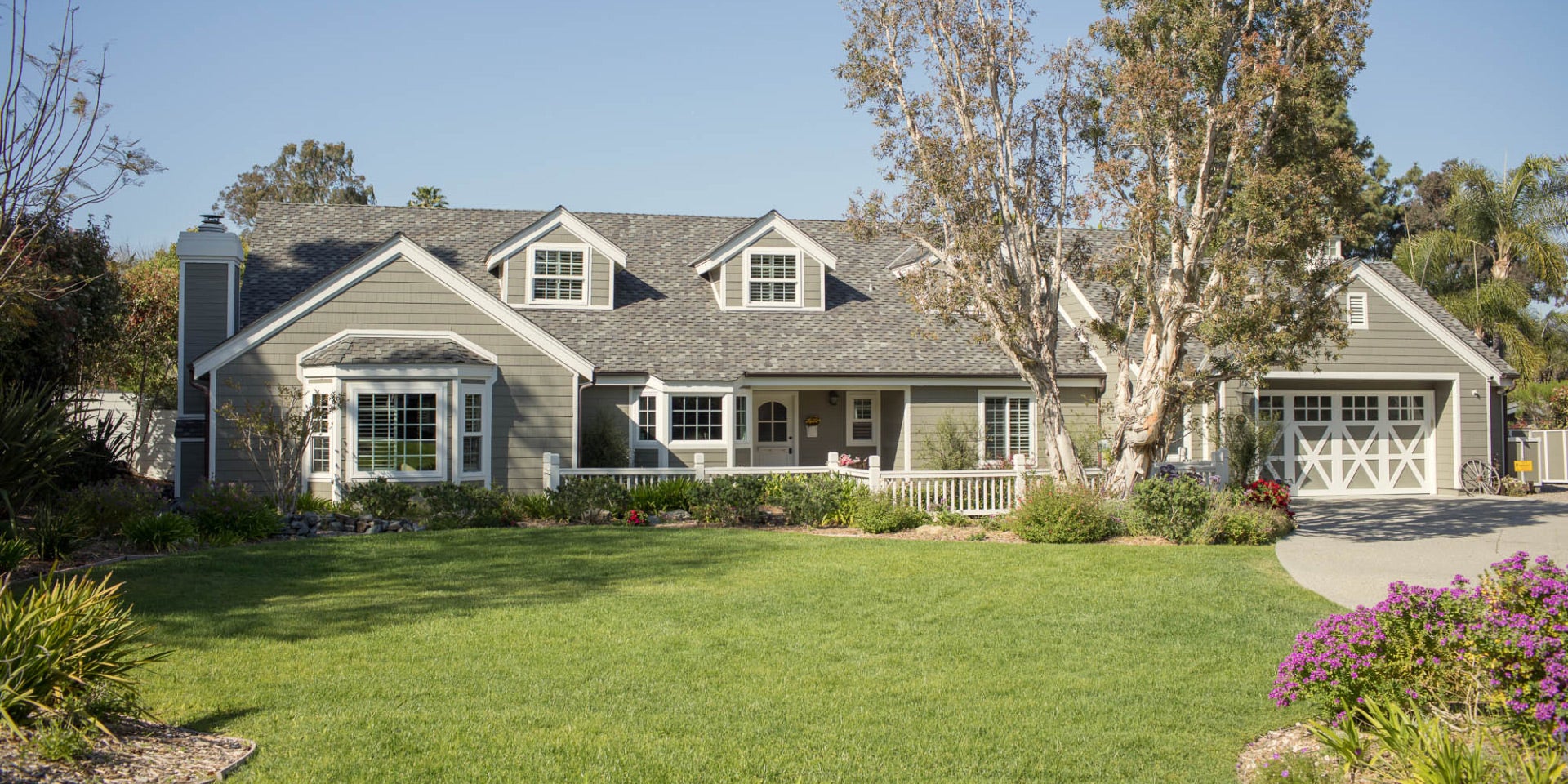After my wife and I retired, we moved from San Francisco to beautiful Bainbridge Island in the state of Washington to be close to our two children and two grandchildren. We sold our condominium in San Francisco and came out with enough cash to be able to buy a new home in Bainbridge outright with no mortgage. Having had a mortgage expense our entire working lives, it was nice to finally be debt-free. Life was good!
Substantial increase in home value
While we lived in Washington the value of our home increased substantially. In fact, the value of our home increased at a faster rate than did our investment portfolio (stocks, bonds, and bank deposits). This was a lovely benefit, but as a result, we felt that we had more of our overall wealth invested in real estate than we liked. Though it was nice to know our home was adding value to our financial holdings, we were frustrated by the fact that we could not access any of our real estate gains. Although we didn’t have any pressing need for additional income, it would have been fun to have had access to additional money for some family vacations and discretionary spending. We are not by nature spendthrifts, but we do want to enjoy our retirement years.
An investment portfolio generates retirement income in two ways: dividends and cashing in on valuation gains. Our home was proving to be a profitable investment, but unlike other investments it paid no dividends, and any increase in value was not accessible. Frankly, why wouldn’t we want to generate as much retirement income as possible?
Accessing funds
We could have accessed funds from the increase in the value of our home in Washington by obtaining a conventional mortgage or credit line from a bank, but then we would have had a mortgage payment as an added monthly expense. Investing the proceeds of the loan and using the investment income to repay the loan, which was an option, seemed like a fruitless exercise benefiting the bank. This did not make much financial sense to us.
We then considered a reverse mortgage. We conducted extensive research on the topic of reverse mortgages. One particular study stood out. Wade Pfau, a renowned retirement professor at The American College in Bryn Mawr, asserts that a reverse mortgage line of credit can be a valuable tool in a retiree’s financial toolkit. I won’t go into a discussion of the technical aspects of his analysis but his analysis made sense to us.
For a number of reasons we decided to cash in on the value of our home. We sold our home in Washington and bought a home in Arizona. As part of the closing process of our new home, we secured a reverse mortgage line of credit with Finance of America for approximately half the value of our new home.
Growing line of credit
One of the great features of this line of credit is that the credit line increases every month. We’re not sure why it works this way but it does. It may have something to do with actuarial mortality considerations. In any event, when we bought our new home, the bank gave us a specific amount as a line of credit. Since that time, the line of credit has increased over $1,000.00 per month and we have more credit available to us now than at the time of purchase.
Another benefit is that we don’t have to borrow against the line of credit until and unless we want to, which means that we are not accruing interest on the entire line of credit. We only accrue interest on the amount we borrow, which up until this point is minimal. Because we have borrowed so little on the line of credit, we pay the interest and insurance that accrues monthly.
Our intention is to use the line of credit to access any future gains in the value of our home for our enjoyment with family. The original purchase price remains intact (more or less depending on whether we pay the interest and insurance as they accrue), and upon our death will go to our children.
Our goal was to have a way of tapping into the increase in value of our home similar to the gains we make in our investment portfolio. I think we have achieved that.
– Joe from Arizona, a FAR customer who is finding purpose in this new stage of his life.
* The opinions expressed in this article are those of the authors. They do not necessarily reflect the opinions or views of the Finance of America Reverse (LLC).
Oregon Only:·When the loan is due and payable, some or all of the equity in the property that is the subject of the reverse mortgage no longer belongs to borrowers, who may need to sell the home or otherwise repay the loan with interest from other proceeds. FAR may charge an origination fee, mortgage insurance premium, closing costs and servicing fees (added to the balance of the loan).·The balance of the loan grows over time and FAR charges interest on the balance.· Borrowers are responsible for paying property taxes, homeowner’s insurance, maintenance, and related taxes (which may be substantial). We do not establish an escrow account for disbursements of these payments. A set-aside account can be set up to pay taxes and insurance and may be required in some cases. Borrowers must occupy home as their primary residence and pay for ongoing maintenance; otherwise the loan becomes due and payable. The loan also becomes due and payable (and the property may be subject to a tax lien, other encumbrance, or foreclosure) when the last borrower, or eligible non-borrowing surviving spouse, dies, sells the home, permanently moves out, defaults on taxes, insurance payments, or maintenance, or does not otherwise comply with the loan terms. Interest is not tax-deductible until the loan is partially or fully repaid.
©2019 Finance of America Reverse LLC is licensed in 50 states and D.C. | Equal Housing Opportunity | NMLS ID # 2285 | www.nmls.consumeraccess.org | 8023 East 63rd Place, Suite 700 | Tulsa, OK 74133 CNot all products and options are available in all states | Terms subject to change without notice | AZ Mortgage Banker License #0921300 | Licensed by the Department of Business Oversight under the California Residential Mortgage Lending Act | Georgia Residential Mortgage Licensee | Illinois Residential Mortgage Licensee | Kansas Licensed Mortgage Company | MA Lender/Broker #MC2855 | Licensed by the Mississippi Department of Banking and Consumer Finance | Licensed by the New Hampshire Banking Department | Licensed by the N.J. Department of Banking and Insurance | Licensed Mortgage Banker — NYS Banking Department where Finance of America Reverse is known as FAReverse LLC in lieu of true name Finance of America Reverse LLC | Rhode Island Licensed Lender | HUD HECMS REQUIRE PAYMENT OF INITIAL AND PERIODIC MORTGAGE INSURANCE PREMIUM.
This article is intended for general informational and educational purposes only, and should not be construed as financial or tax advice. For more information about whether a reverse mortgage may be right for you, you should consult an independent financial advisor. For tax advice, please consult a tax professional.















I WANT TO KEEP UP TO DATE ON RETIREMENT TRENDS
Follow Us.